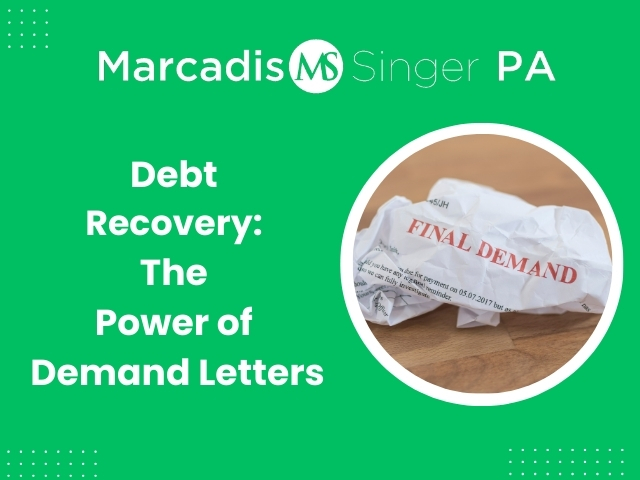Billions in consumer and business debt goes unpaid every year. For creditors trying to retrieve those owed funds, well-crafted demand letters can be a good strategy. This article outlines strategies for effective debt collection letters.
Why Send Demand Letters?
Demand letters are legal notification to debtors they have outstanding debt owed to the creditor or debt owner. Key purposes include:
- Officially documenting the debt details like total past due amount
- Stating required payment options to resolve the balance
- Spelling out repercussions like potential litigation or credit reporting if unpaid
While demanding payment, the letter aims to prompt the debtor’s response and recovery of owed funds—without immediately involving the courts.
Essential Components of Demand Letters
Key elements to drive response and debt repayment include:
- The amount owed clearly documented including any late fees or interest
- Firm yet professional tone stating creditor rights
- Methods and due date to make payment
- Next actions if unpaid like referral to collections agency or attorney
The following is a dramatization and is NOT an actual event: For example, a credit card provider’s letter to a delinquent cardholder could cite the $1,375 balance unpaid over 6 months. It could then state that she/he must pay within 30 days through options like online bill pay, bank transfer, etc. Failing repayment by the due date risks lawsuit or further credit damage.
The Psychology Behind Effective Demand Letters
Understanding the psychological factors at play in debt recovery can enhance the effectiveness of demand letters. Here’s how:
Human behavior is influenced by various psychological principles, and debt collection is no exception. By tapping into these principles, debt collectors can craft demand letters that resonate with debtors on a deeper level, increasing the likelihood of payment.
One key psychological principle to consider is the concept of reciprocity. By framing the request for payment as a reciprocal exchange, debt collectors can appeal to debtors’ sense of obligation to fulfill their end of the bargain. For example, emphasizing previous benefits or services rendered by the creditor can evoke a sense of indebtedness in the debtor, motivating them to repay the debt.
Furthermore, incorporating scarcity and urgency tactics can prompt immediate action from debtors. By highlighting limited-time offers or emphasizing the potential consequences of non-payment, demand letters can create a sense of urgency, compelling debtors to prioritize repayment.
Why Hire a Debt Collection Attorney?
Discover the Benefits of Professional Debt Collection Representation.
- Legal Expertise: Ensure Compliance with Legal Requirements and Regulations, such as the FDCPA (Fair Debt Collection Practices Act).
- Efficiency: Expedite the Collection Process with Experienced Legal Professionals.
- Maximized Recovery: Increase the Likelihood of Successfully Retrieving Outstanding Debts Through Effective Legal Strategies.
- Risk Mitigation: Minimize Legal Risks and Exposure to Potential Litigation Through Proper Handling of Debt Collection.
Take the Stress Out of Debt Collection Efforts by Partnering with a Trusted Legal Advocate. Contact Us Today to Discuss How Our Debt Collection Attorneys Can Assist You in Recovering Your Unpaid Debts.
Follow-Up Strategies Post-Demand Letters
While strong demand letters are important first steps, follow-up is key to driving debt repayment. Purposeful actions after sending letters include:
- Documenting response or non-response by stated due dates
- Initiating assertive communication via phone in cases of non-reply to reiterate obligations
- Promptly escalating to legal action, with attorney assistance, when debtors refuse to settle outstanding balances without valid justification
Post-demand letter approach requires balancing diligent debt pursuit with legal compliance and situation-specific flexibility. Our debt collection lawyers help craft these critical next moves .
FAQs
1. What types of debt typically use demand letters?
All consumer debt from credit cards, medical bills, personal loans to mortgages employ demand letters. They are also commonplace for commercial debt like business loans or vendor invoices.
2. Can I draft demand letters without a legal background?
It is advisable to work with debt collection attorneys to draft customized, compliant demand letters aligned to debt type and debtor profile.
3. What legal actions can creditors take to recover unpaid debts?
Creditors have legal options to pursue unpaid debts, including filing lawsuits, obtaining judgments, garnishing wages, seizing assets, and enforcing liens. Consulting with a creditors’ rights attorney can help determine the most effective course of action.
4. How long does the debt collection process typically take?
The duration of the debt collection process varies depending on factors such as the amount of debt, debtor cooperation, and chosen legal actions. While some cases may resolve quickly through negotiation, others may require litigation, prolonging the process. A creditors’ rights attorney can provide insights into expected timelines for specific cases.
5. Can creditors use debt collection agencies without legal assistance?
Creditors can engage debt collection agencies to pursue unpaid debts, but legal assistance may be necessary for complex cases or when debtors contest the debt. Debt collection agencies are limited in the legal actions they can take and may not be equipped to handle disputes or litigation. Consulting with a creditors’ rights attorney ensures compliance with relevant laws and maximizes debt recovery efforts.
Achieve Optimal Letter Results
For the best demand letter outcomes balanced across wide-ranging unpaid debt, leverage experienced debt collection lawyers. Contact us to craft messages driving debtors to resolve past-due balances.
Call Marcadis Singer PA at (813) 288-1881 to speak with an attorney about customizing demand letters to maximize your debt recovery efforts.
Conclusion
Strategically written demand letters enable creditors to formally pursue unpaid debts while minimizing need for premature legal action. Debt collection experts help optimize tone and messaging to prompt overdue balance repayment across diverse debtor situations.
